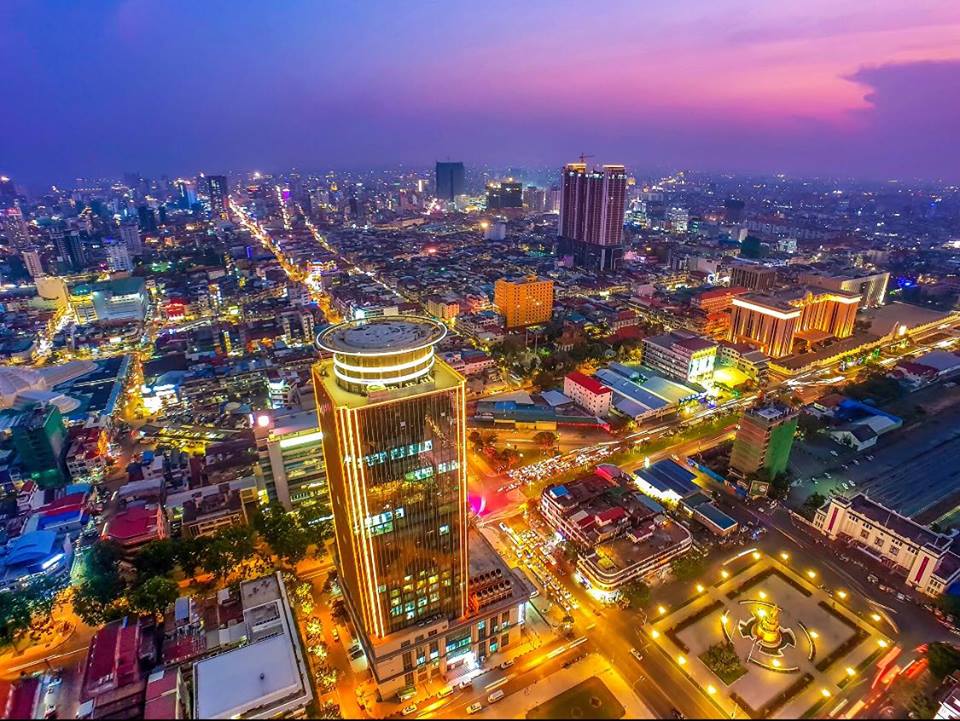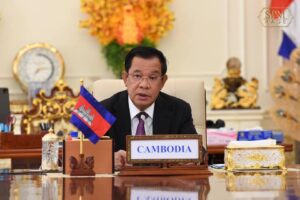The ESG practices of Chinese State owned enterprises In Cambodia
The state of Chinese companies’ Environmental, Social, and Governance (ESG) reporting gained some momentum after China announced its ambition to achieve carbon neutrality by 2060. The key indicators of ESG include those concerning (1) The environment: Climate change, greenhouse gas emissions, waste and pollution, resource depletion, land use and biodiversity; (2) Social conditions: labour standards, diversity and inclusion, health and safety, data privacy, product safety and responsibility, learning and development, and; (3) Governance: Board diversity, bribery and corruption, executive compensation, shareholder rights and business ethics. The strategy suggested by Chinese corporations includes reviewing industry megatrends and peer performance, identifying opportunities created by the ESG movement, and embedding ESG into the company’s vision and growth strategies.[1]
However, policy implementation remains an issue. Based on official policy, China’s economy is transitioning from “brute-force economic expansion” to a growth model that focuses more on “inclusive and environmentally sustainable growth”, in which ESG adoption by Chinese companies is instrumental.[2] ESG can be another source of China’s soft power projection as China’s implementation of ESG presents “a serious shift towards meeting global standards and domestic-level sustainable development objectives”.[3] However, there are loopholes and gaps in implementing ESG standards, especially among Chinese investors overseas. This paper aims to shed light on the practices of Chinese state-owned enterprises regarding ESG application in Cambodia.
In Cambodia, there is no law or regulation on ESG per se. Still, some regulatory frameworks support ESG standards and practices, namely regulatory framework on environmental protection, social securities, and employment and labour relations. Overall, there is a lack of coherent information and understanding on ESG among local policy makers. Different government agencies have different roles regarding ESG and the outstanding challenge is policy and institutional coordination between agencies. The Ministry of Environment oversees ecological protection while the Ministry of Labour and Vocational Training oversees labour relations and social securities
The environmental protection framework includes: The Law on Environment Protection and Natural Resource Management adopted in 1996, Sub-Decree on Management of Solid Waste adopted in 1999, Sub-Decree on the Water Pollution Control adopted in 1999, and Sub-Decree on the Control of Air Pollution and Noise Disturbance adopted in 2000. National Policy on Green Growth adopted in 2013 provides a comprehensive policy framework to develop a balance of economic development with environment, society, culture, and sustainable use of national resources.
Specifically, concerning investment projects in Cambodia, the Sub-Decree on the Implementation of the Environmental Impact Assessment (EIA) Process that was adopted in 1999 provides certain EIA guidelines. Meanwhile, the Ministry of Environment is responsible for scrutinising and reviewing EIA reports in collaboration with other concerned ministries. It also has to follow up, monitor and take appropriate measures to ensure that project owners conform to the Environmental Management Plan while project construction is underway, and accede to their EIA report’s approval. The investors or project owners have to pay the EIA examination service fee and monitor the project implementation. In practice, most EIAs are outsourced to private sector consultants due to the lack of human resources at the Ministry of Environment. The Ministry will approve the assessment result subject to payment of the service fee.
Concerning labour rights and standards, the regulatory framework on employment and labour relations includes the Labour Law adopted in 1997, which provides comprehensive protection of labour rights and working conditions. In 2003, the Labour Arbitration Council was established with the support of the International Labour Organisation to resolve labour disputes. Under the Labour Law, the wage must be equal to the guaranteed minimum wage that ensures every worker a decent standard of living compatible with human dignity. Minimum wages in the garment and footwear sector have been negotiated among the trade unions, corporations and government agencies. The minimum wage in the garment and footwear sector has increased from $100 in 2014 to $192 in 2021. The minimum wage of workers in this sector is normally used as a reference for negotiation and determination of wages and other working conditions in other sectors.
The Law on Social Security Schemes for Persons Defined by the Provisions of the Labour Law was promulgated in 2002 to establish a social security scheme composed of a pension system. The pension system’s objectives include providing old-age benefit, invalidity benefit and survivors’ benefit; and occupational risk insurance to cover employment injury and provide occupational disease benefits. The National Social Security Fund launched in 2007 manages national social insurance schemes covering work injury and health insurance.
Chinese companies in Cambodia
Chinese companies must comply with EIA to get their investment projects approved, just like other domestic and foreign companies. Getting access to the EIA reports remains an obstacle as the project owners treat these reports with great confidentiality. However, Article 16 of the Law on Environmental Protection and Natural Resource Management (1996) stipulates that the Ministry of Environment, upon request from the public, needs to provide any information about the activities and encourage public participation for environmental protection and natural resource management. The lack of transparency, public participation and disclosure of EIA reports are issues that need to be addressed and improved.
According to the Asian Vision Institute survey in 2020, Chinese state-owned companies have varying standards regarding sustainability practices and ESG reports. These companies do not have any clear strategy to integrate environmental and social sustainability into corporate governance, and they do not have any ESG disclosure plans as yet. However, when Cambodian authorities set rules and regulations on ESG disclosure, they comply with local regulations by developing and disclosing ESG standard reports. Concerning environmental and social safeguards, four Chinese state-owned enterprises are briefly discussed below. The information is based on the survey conducted by the research team from the Asian Vision Institute (AVI) in September 2020.
Although ESG standards have been promoted in China in recent times, Chinese state-owned enterprises functioning overseas have not fully integrated environmental and social frameworks into their corporate governance philosophy and practices. Due to the lack of local rules and regulations on ESG of the host country, Chinese companies are not obligated to have ESG integration and disclosure in their operations.
Noticeably, Cambodia’s investment law does not contain explicit and comprehensive social and environmental safeguards. Other key barriers to ESG development in Cambodia are the lack of understanding of ESG especially among policymakers, limited data, and lack of transparency in Chinese investment projects’ environmental and social safeguards measures.
The host country plays an enormous role in the implementation of regulatory social and environmental safeguards. The Cambodian government should introduce policy guidelines on ESG integration and reporting so that the quality and sustainability of investment projects can be enhanced. Moreover, Chinese regulators should also enforce ESG guidelines on their state-owned enterprises investing overseas. It will also serve foreign policy objectives and promote the sustainability and growth of the companies. The enhancement of the quality of Chinese investments overseas will significantly contribute to the soft power of China.
Extracted from an analysis by Dr. Chheang Vannarith. Chheang Vannarith is a Visiting Fellow at ISEAS – Yusof Ishak Institute and President of the Asian Vision Institute (AVI), an independent think tank based in Phnom Penh, Cambodia.
This article was published in ISEAS Perspective 2021/140







